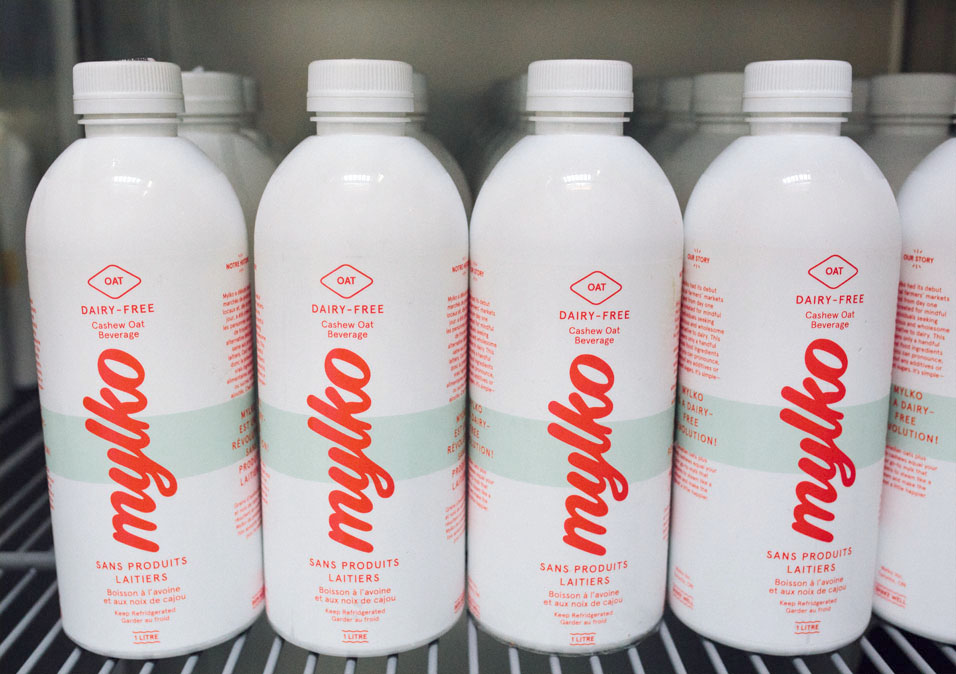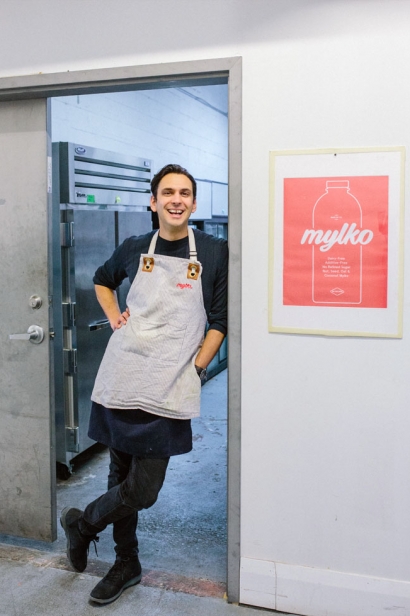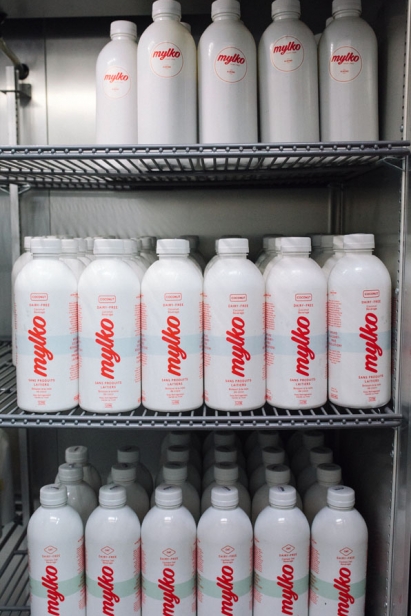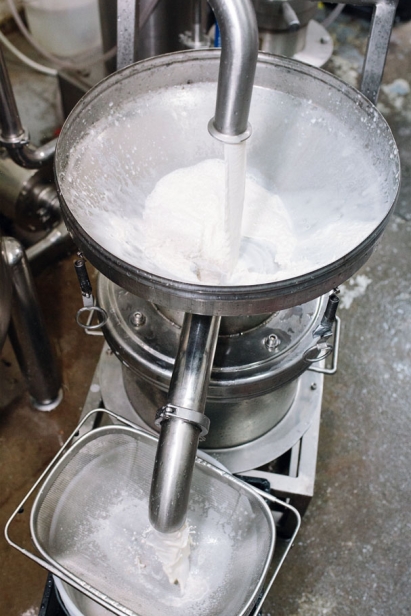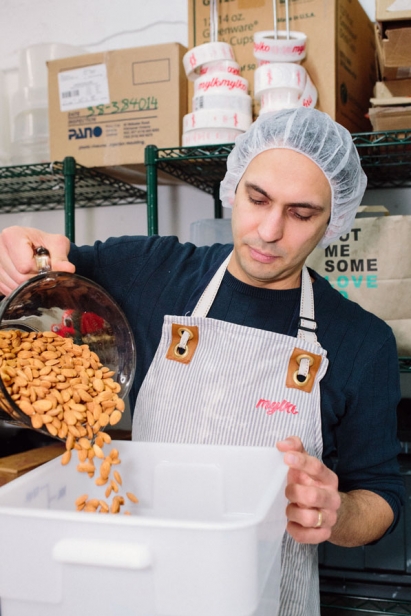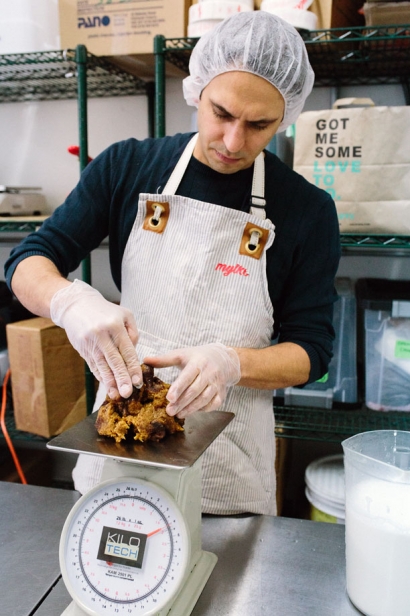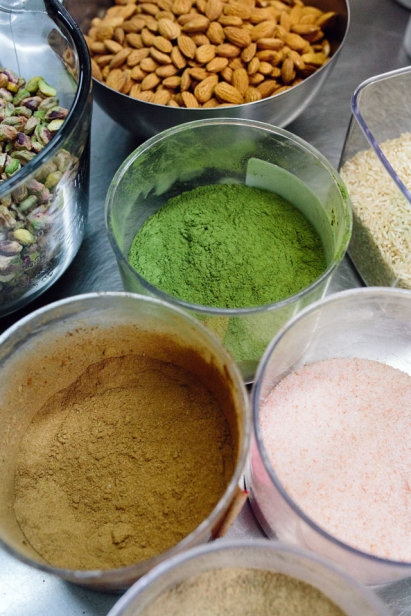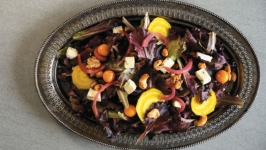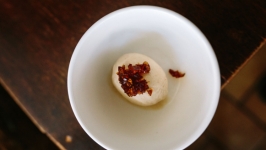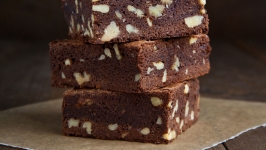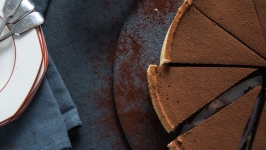Will That be Mylk in Your Coffee?
Around the world, more and more people are fine-tuning their diets by turning to plant-based milks.
Often derived from soy, almond, coconut or rice, these plant milks are claiming a growing stake in the global market — more than doubling over the past eight years, from US$7.4 billion in 2010 to US$16 billion in 2018.
There are many reasons for this ongoing shift. Some people simply prefer the flavour of plant-based milks. Others seek health benefits from reducing their intake of animal protein and saturated fat or need to avoid the lactose found in milk from cows and other mammals. And more than a few want to help reduce the greenhouse gas emissions entailed by mass dairy production.
For the real purists among consumers of plant-based milk, there’s a Toronto-based company named Mylko that is resolutely avoiding all use of preservatives, additives and refined sugars.
“When you drink any of our products, you will be getting the original, natural flavours,” says Faiza Vassanji, who owns the company with her husband, Adam Toth. “There’s nothing in our offerings that you can’t pronounce — no chemicals, no gum fillers, no emulsifiers, no refined sugars. The taste is always natural and wholesome.”
Easy claims to make, of course, but Vassanji insists they’re fair.
“Look at our almond milk,” she says. “Many companies are under severe scrutiny for the almond content in their milk — sometimes as low as two per cent. Our almond content is at least 10 times as high.”
An analysis of one U.K. brand of almond milk yielded precisely the two per cent count she mentions. At this level, almond milk lacks most of the protein consumers are looking for.
If they had their druthers, Vassanji and Toth would offer a raw product, to preserve all of the natural ingredients. But they can’t because regulations forbid this and the exigencies of marketing require some treatment to extend shelf life.
Their solution? Cold pressure pasteurization, a process long used in Europe, which, depending on the product, gives a two- to four- week shelf life.
Heat pasteurization, a more common technique, does preserve shelf life, but “morphs the original product into a ‘less-living’ state,” as the company notes on its website.
“Some products are heated to such a high temperature that they damage the nutrient profile of the milk and the taste,” Vassanji says. “We avoid this at all costs.”
Only a couple years back, Vassanji and Toth had no idea they would be making a living by selling a health-food product. “We both made 180-degree turns,” Vassanji says. “I was working in finance, spending my days on trading floors — and Adam was a ballet dancer from Budapest who worked with Hungarian dance companies and later performed all over the world with the National Ballet of Canada. For both of us, this was an existential leap.”
For Vassanji, the move into plant-based milk was a matter of personal necessity. “It wasn’t that I couldn’t consume conventional dairy at all, but I realized I was somewhat intolerant and developing more and more aversion to it.”
She started to buy commercial almond milk, but quickly realized that something in it still offended her “vulnerable tummy,” as she puts it.
“This led me to start making nut milks at home — and I loved the taste and didn’t any longer feel intolerance.”
When friends happily consumed the several types of nut milks she produced, Vassanji realized that selling her milk might help her earn her bread.
She began small, pitching her idea to a local farmers’ market. They resisted at first, but after a few tastings agreed to let her begin selling. “And the rest,” she says, “is history.”
You can now buy Mylko products at many places in the Toronto region, including the Sorauren, Leslieville and Brickworks farmers’ markets. They are also available at retail outlets such as Farm Boy, BlossomPure Organic, Calii Love, Cheese Boutique, Fiesta Farms, McEwan Foods, Planta, The Sweet Potato and Impact.
Mylko will also deliver to customers in the Toronto region or they can pick up at the facility in the Junction. One-litre containers cost between $8 and $10.
They have roughly a dozen products ranging from their signature line, almond-cashew-coconut mylk, to specialty sipping flavours, such as pistachio-rose and strawberry-rhubarb.
Their cashew barista blend can be frothed and, as their website notes, “stands up to the best coffee in the city and… maintains latte art equally if not better than whole dairy milk.” Toth, as a Hungarian, claims expertise on this point. “Milk is a big part of our culture and, until Mylko, I wasn’t aware of anything other than dairy that could function in hot beverages or provide the foam characteristic in a cappuccino.”
Mylko as a company is attuned to consumers’ concerns about responsible sourcing of ingredients. When possible, Vassanji and Toth opt for organic and locally sourced ingredients. When they have to import, they try to respect fair-trade principles to protect the interests of distant growers and exporters. “We can’t always tick every box, but we try our best,” Vassanji says.
If almonds of good quality were produced in Canada, they would use those, but, of course they're not, so they have to import. From where? Almond cultivation in California is a stress on an already drought-afflicted landscape. The solution? Almonds from Spain. And soon, Mylko will have a completely sugar- and gluten-free oat mylk drawing on the plentiful supply of quality Canadian oats.
“With the world and our business changing constantly, our sourcing will always be a dynamic process instead of a static one,” Vassanji says.
The future promises slow and controlled expansion, she adds.
“We’re now going to some of the bigger grocers — but we really want to maintain our identity and not submit to demands that might compromise our products. We’ll go slowly, taking care to never bastardize the natural state of our ingredients.”
There’s really no other company in Canada doing what Mylko does, Vassanji says. “I don’t think anyone else is so totally focused on non-dairy milk, nor working so hard to develop a range of flavours. That’s all we do.”
Consumers will wonder how well non-dairy milks compare nutritionally with cow’s milk. A McGill University study, published in the Journal of Food Science and Technology a year ago, found mixed results from soy, almond, rice and coconut drinks. Soy milk proved a close match to cow’s milk, with similar levels of protein, carbohydrate, fat, vitamins and minerals. On average, Mylko has four to five grams of protein per cup in comparison to the eight grams per cup of cow's milk. And Toth and Vassanji are looking for ways to naturally increase the protein count in their products.
Of course, the diet as a whole is key to determining whether one is getting enough of a given nutrient. For most consumers, the choice of buying dairy or non-dairy milk will turn on other factors — taste, environmental impact and concerns about lactose or other ingredients that may aggravate particular health concerns.
“My body just feels better when I’m avoiding dairy milk,” Vassanji says. “As for taste — well, I think we’re proving that nut milks bring no compromise at all.”
Mylko
mylko.ca | info@mylko.ca | @mylkoman


